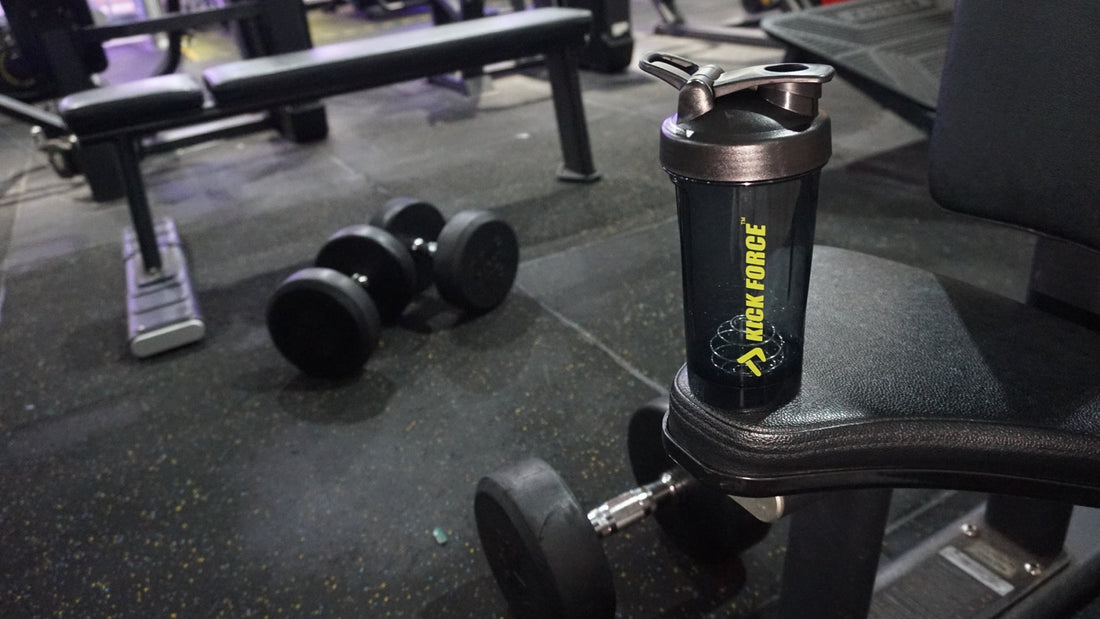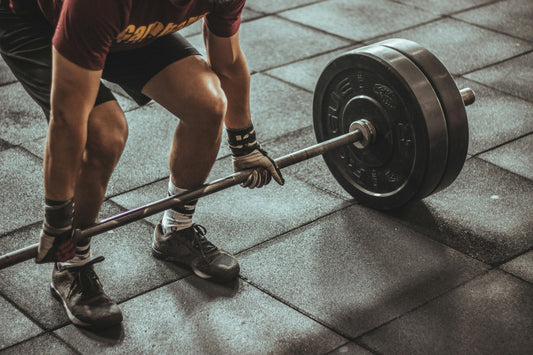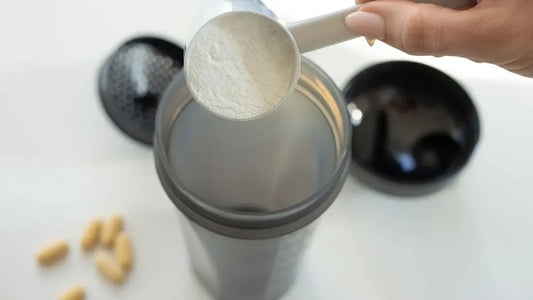
Quel est le meilleur moment pour prendre des protéines ?
Partager
Les protéines sont un macronutriment essentiel au développement musculaire, à la réparation des tissus et au maintien d'une bonne santé générale. Que vous soyez un athlète, un passionné de fitness ou que vous cherchiez simplement à améliorer votre alimentation, vous vous demandez peut-être quel est le meilleur moment pour prendre des protéines. La réponse dépend de vos objectifs, de votre mode de vie et de votre routine quotidienne.
Examinons quelques-unes des raisons les plus courantes pour lesquelles les gens utilisent des suppléments de protéines de lactosérum :
- Développer ses muscles
- Soutenir la perte de poids
- Prévenir la perte musculaire
- Améliorer les performances et la récupération
Le moment idéal pour consommer des protéines pour développer ses muscles
Si votre objectif principal est de développer votre masse musculaire, consommer des protéines autour de vos séances d'entraînement peut être très bénéfique. C'est ce qu'on appelle souvent la « fenêtre protéique ».
- Après l'entraînement : Il est généralement recommandé de consommer des protéines dans les 30 minutes à 2 heures suivant l'entraînement. C'est à ce moment-là que vos muscles sont les plus réceptifs aux nutriments, favorisant ainsi la récupération et la croissance. Une protéine à digestion rapide comme le lactosérum est idéale après l'entraînement. ( Source )
Cependant, les personnes qui s’entraînent à jeun, par exemple avant le petit-déjeuner, peuvent bénéficier de la consommation de protéines peu de temps après leur séance d’entraînement pour reconstituer leur corps, car elles sont restées sans protéines pendant une période prolongée.
Protéines pour la perte de poids
Pour ceux qui se concentrent sur la perte de poids, le timing de la consommation de protéines peut aider à la satiété et au maintien de la masse musculaire pendant la restriction calorique.
- Matin : Commencer votre journée avec un petit-déjeuner riche en protéines peut aider à réduire les envies et à vous garder rassasié plus longtemps, ce qui vous permet d'éviter plus facilement de trop manger.
- Tout au long de la journée : répartir uniformément l’apport en protéines sur les repas aide à maintenir les niveaux d’énergie et soutient le métabolisme.
Prévenir la perte musculaire
Des études révèlent que les individus ont tendance à perdre environ 3 à 8 % de leur masse musculaire chaque décennie après avoir atteint l’âge de 30 ans. Malheureusement, cette perte musculaire est associée à un risque accru de fractures et à une durée de vie plus courte.
Pour aider à contrer ce déclin, les scientifiques recommandent de répartir uniformément l’apport en protéines tout au long de la journée , en visant environ 25 à 30 grammes de protéines par repas. ( Source )
Améliorer les performances et la récupération
- Pour l’entraînement d’endurance , associer des protéines à une source de glucides pendant et après l’exercice peut améliorer les performances, favoriser la récupération et minimiser les douleurs.
- Lors d’un entraînement de résistance, la consommation de protéines, soit immédiatement avant, soit après une séance d’entraînement, seules ou combinées à des glucides, peut améliorer les performances et favoriser la récupération.
Points clés à retenir
Le meilleur moment pour prendre des protéines dépend en grande partie de vos objectifs individuels :
Pour la croissance musculaire : il est recommandé de le faire dans les 30 minutes à 2 heures suivant l'entraînement.
Pour perdre du poids : privilégiez les protéines le matin et répartissez-les tout au long de la journée.
Pour prévenir la perte musculaire : incluez des protéines dans chaque repas.
Pour améliorer les performances et la récupération : pendant et après l'exercice pour l'entraînement d'endurance, soit immédiatement avant ou après une séance d'entraînement pour l'entraînement de résistance.
En fin de compte, la régularité dans la satisfaction de vos besoins quotidiens en protéines est plus importante que le timing précis. Trouvez un programme adapté à votre mode de vie et à vos objectifs de santé. Vous maximiserez ainsi les bienfaits de ce macronutriment essentiel.
Questions fréquemment posées
1. Puis-je prendre des protéines les jours de repos ?
Oui ! Les protéines sont essentielles à la récupération et au maintien de la masse musculaire, même les jours sans exercice.
2. Puis-je consommer toutes mes protéines en un seul repas ?
Bien que cela soit possible, répartir l’apport en protéines tout au long de la journée est plus efficace pour la synthèse des protéines musculaires et la satiété.
3. Qu'est-ce qui est mieux : le lactosérum ou la caséine ?
Les deux ont leurs avantages. La whey est idéale après l'entraînement grâce à son absorption rapide, tandis que la caséine est plus adaptée aux périodes prolongées, comme avant de se coucher.


